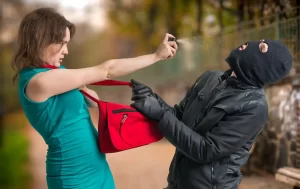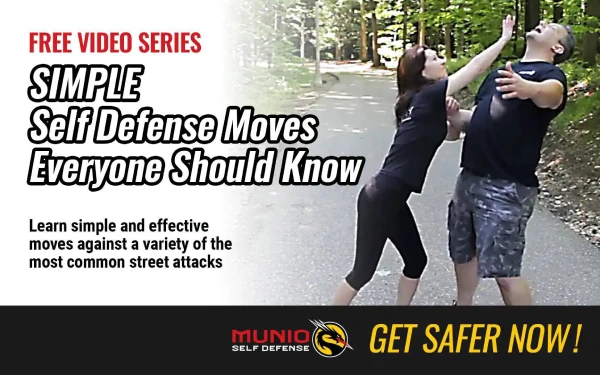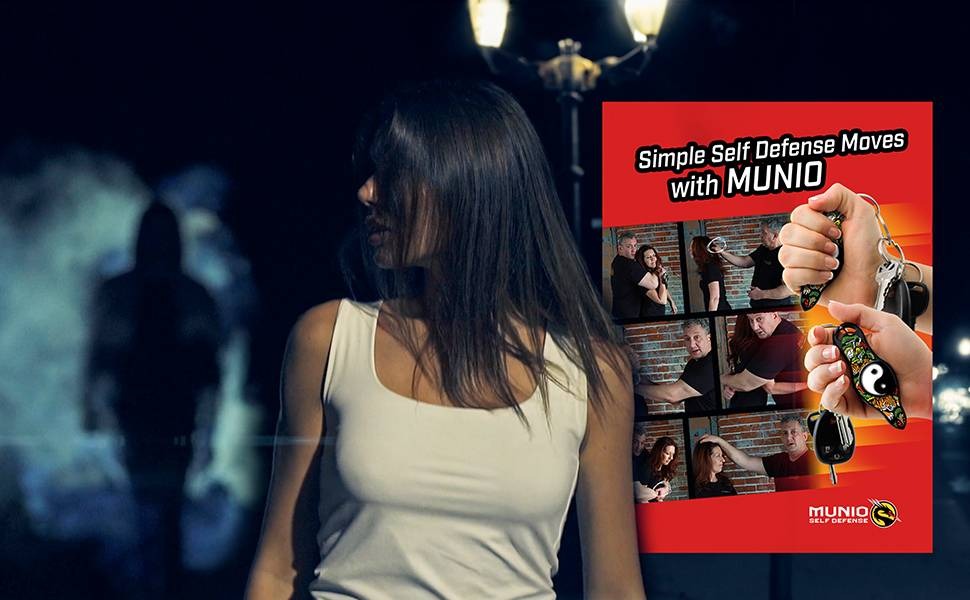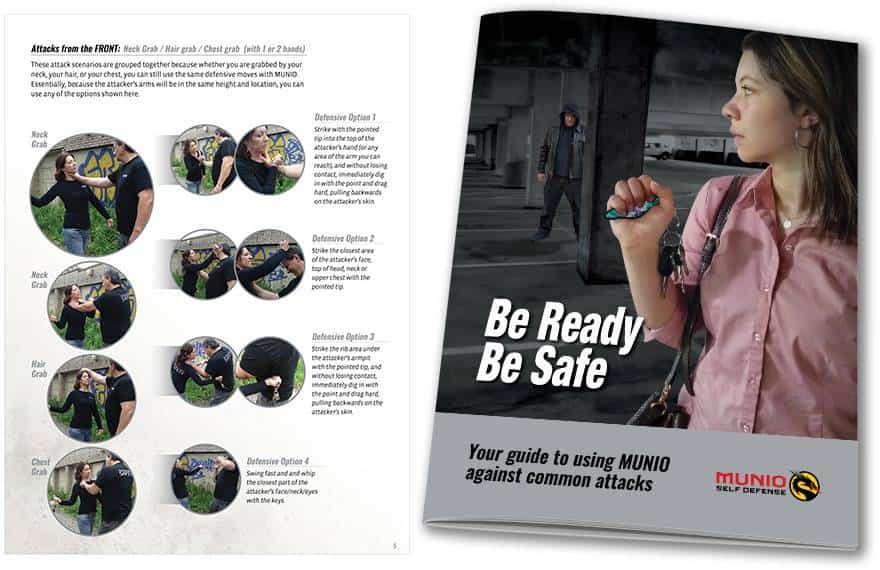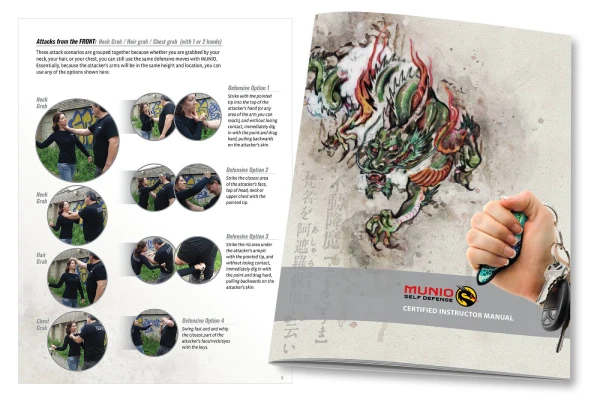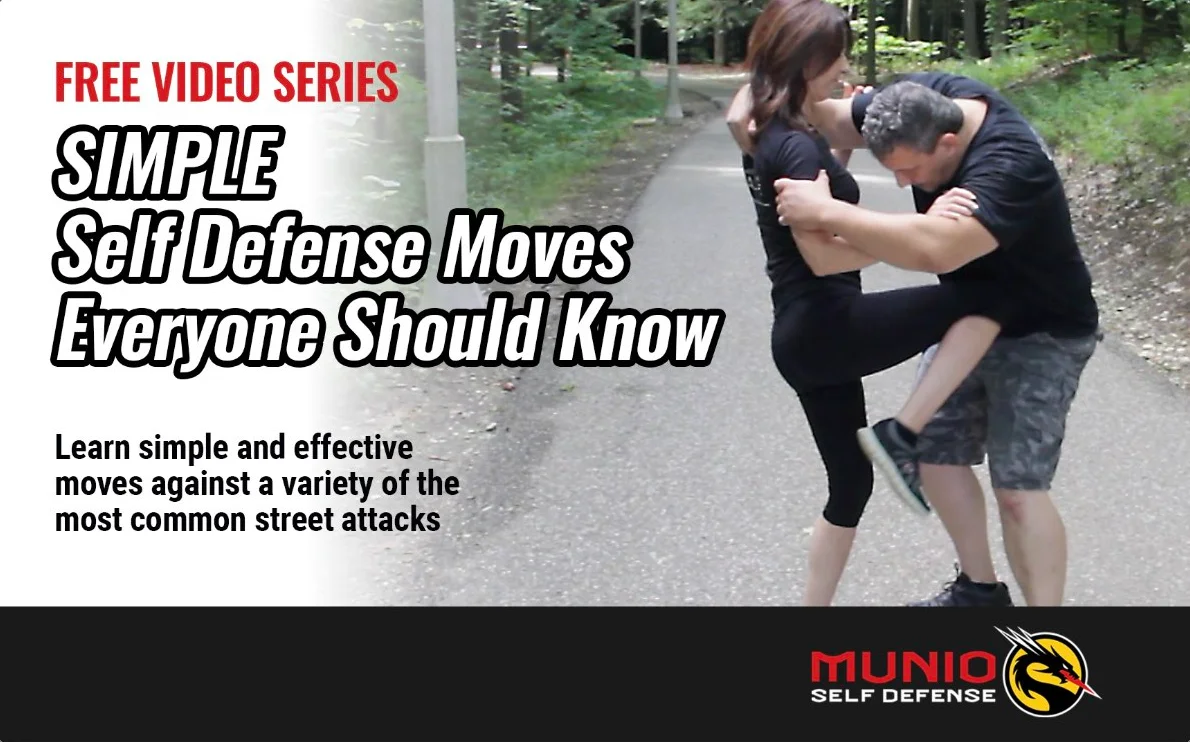A self-defense keychain is a good everyday carry tool to own. I think everyone should carry one. And judging by their popularity, I’d say many other folks would agree. Just Google the subject and you’ll find almost any type of keychain you’d like to use to protect your … assets.

If you’re thinking about buying one yourself, I congratulate you on your smart choice. But before you start imagining yourself vanquishing all kinds of foes and dirty doers like Bruce Lee in the dungeon scene of Enter the Dragon, let’s take a second to answer this key question: “Are self-defense keychains legal?”
After all, how well can your self-defense keychain protect you if it gets confiscated or you’re not permitted to bring it into a concert, on your travels, or inside other places where you may need it most?
If staying on the good-guy side of the law matters to you, while at the same time being equipped and ready to protect yourself, read on. This article cannot possibly address all the laws pertaining to every type of self-defense keychain in every state, city, town, or hamlet. However, it can provide you with some wisdom and jurisprudence in defending yourself both legally and effectively.
Are Self-Defense Keychains Legal?
If you take a look at some of the self-defense keychains available for sale out there, you’d be amazed by the variety of choices. Some of the most popular ones include:
- Kubotan keychains
- Resin self defense keychains
- Brass knuckle keychains
- Kitty cat keychains
- MUNIO self-defense keychains
In short, self defense keychains vary widely, with some more overtly designed to look like a weapon than others — and state and local laws vary as well. So you’ll need to evaluate each keychain on a case by case basis for your particular locality. Here are some tips for picking out legal self-defense keychains.
Choosing a Legal Self-Defense Keychain
In regard to the legality of your self-defense keychain, I have found that simpler is better. Ask yourself this: “What am I hoping to accomplish?” After all, we’re talking keychains here. Ones that have been designed or adapted for effective self-defense.
My criteria:
- Does it look like a keychain, or more like a weapon? Think about it. For instance, as cute as they might look, kitty cat keychains are classified as brass knuckles, a deadly weapon that’s illegal in California.
- Is it something that will draw attention, or does it blend right in? After all, why attract attention to yourself?
- Is it easy to access and easy to use effectively? Even for those with little or minimal training, especially in a stressful situation?
- Is it a really good keychain? After all, that’s pretty important too.
If your answer is “yes” to each of the above questions, you’re off to a good start.
Next, ask yourself these questions:
- Would a law enforcement officer be likely to question it? This is not something you want to happen. At the least, it could cause you an unwanted delay, and worst case scenario, you could have it confiscated or even be arrested.
- Would it be likely to be confiscated if you forgot you had it at a show, concert, sporting event, or other public venue where bags and belongings are checked or scanned?
- Is there a specific law or statute addressing whatever may be the “defense” aspect of your self-defense keychain?
If your answer is “yes” to any of these questions, I’d err on the side of caution and pass.
Remember, if you want to be sure, talk with a lawyer or law enforcement officer.
One thing to note: If a private business doesn’t want you to carry a self-defense object, they can post this policy and enforce it. In that case, it’s good advice to carry it in your pocket — and make sure you’re not carrying anything that looks like a weapon from the movie Men In Black.
Laws on Self-Defense Keychains: In What States Are Self Defense Keychains Illegal?
Nothing can be more confusing than sifting through the many laws and statutes that exist concerning the right to carry firearms and other weapons, and of course, the use of force in employing them. As already mentioned, you should speak to local law enforcement if you have any doubts about the legality of your self-defense keychain.
As a county detective, I worked for the district attorney. We were there to assist police and citizens alike when they had questions exactly like the one we’re asking today. While we weren’t permitted to give legal advice, we were able to tell inquiring minds what the law said and where to find what they were looking for. For us, the law came from Title 18 of the Pennsylvania Consolidated Statutes, or as it’s commonly called, The Crimes Code. Every state has something similar.
In addition to your state, your county or local municipality may have additional laws to consider. We always recommended contacting an attorney for a thorough interpretation of any law, since they have knowledge and access to case law that is up to date. But even so, I’ve had people call me to say they had been given misleading advice by a professional. It can happen.
You may even find a police officer that isn’t certain about what the court’s latest ruling may be on specific “uncommon” devices, as I’ll call them. The laws simply weren’t written to consider every variation that the human mind can conjure up.
Legal Resources
At Justia Law you can find any state’s criminal laws as well as research aids and attorneys. For local laws you can research online or simply call.
When researching criminal codes, look for sections that address the following:
- Possessing Instruments of Crime
- Prohibited Offensive Weapons
- Use of Force
Here’s what I dug up in Section 908(a)(c) of the Pennsylvania Crimes Code regarding offensive weapons:
Any bomb, grenade, machine gun, sawed-off shotgun with a barrel less than 18 inches, firearm specially made or specially adapted for concealment or silent discharge, any blackjack, sandbag, metal knuckles, dagger, knife, razor or cutting instrument, the blade of which is exposed in an automatic way by switch, push-button, spring mechanism, or otherwise, any stun gun, stun baton, taser or other electronic or electric weapon or other implement for the infliction of serious bodily injury which serves no common lawful purpose.
Research case law and remember that what is legal today may not be tomorrow. Also, keep in mind that circumstances matter. For example, a screwdriver is perfectly legal and very useful. I’ve even used one once or twice to fix stuff. But if you are caught at night behind a warehouse trying to jimmy a door with one, guess what? It’s now considered an instrument of crime.
MUNIO Self-Defense Keychains: Protect Yourself with a Legal EDC Tool
The question “Are self-defense keychains legal?” no longer concerns me because I know the devices I carry are legal without question. Coupled with my proficiency in martial arts, I’m about as safe as I’m going to get, short of hanging out with Chuck Norris. Could someone still overpower me with greater skill and weaponry? Of course. But I’m not going to lose any sleep over it. As an old friend once said, “I’m a heck of a guy for five minutes. After that, no guarantees.”
One of the EDC tools I swear by the most is my MUNIO self-defense keychain. Not only is it extremely effective and practical to use, but MUNIO is legal in all states and doesn’t look like a weapon, which means you can bring it anywhere worry-free — to a concert, school, or even on an airplane.



